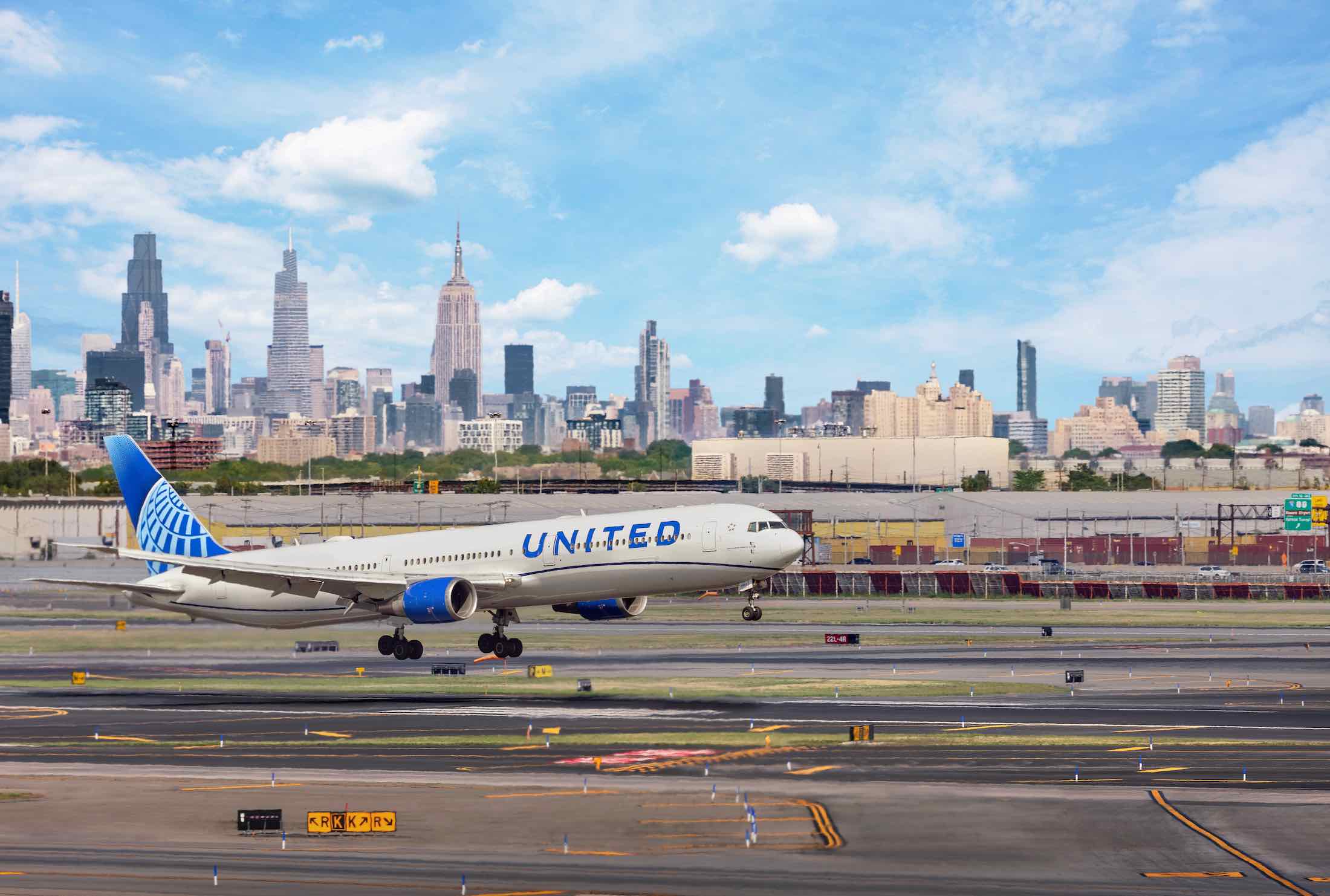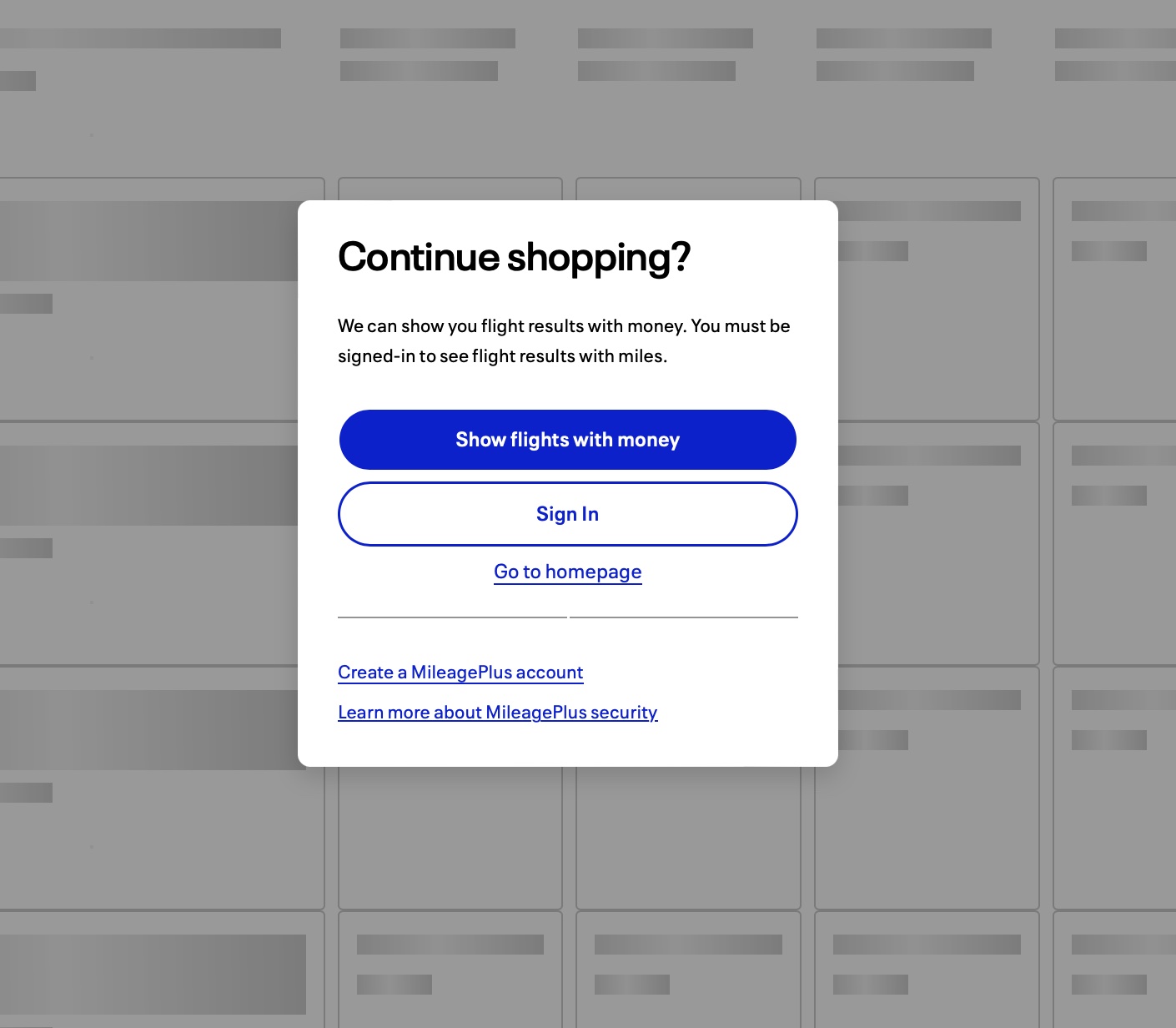
We’ve talked a lot about Delta’s AI pricing plans, which invited a lot of scrutiny, even from the U.S. Senate. But if any U.S. airline is positioned to push “next-gen” pricing into the world of airline tickets, I suspect it’s actually United Airlines, especially now that MileagePlus requires you to be signed in to even search for awards.
Will United Airlines Use AI For Award Pricing?
To be clear up front: this is my conjecture. I’m connecting dots based on public changes and what we know about how airlines use data. Delta has publicly told lawmakers it is not using AI to set individualized fares based on personal data, even as it rolls out AI-assisted revenue tools across part of its network. United, meanwhile, just created the perfect testbed for personalized award pricing by gating award searches behind a login. Put those two realities together, and I can easily imagine United becoming the first mover on truly dynamic, user-aware award pricing.
What Changed: United Now Requires A Login For Award Searches
Sometime in the last month or so, United has begun requiring travelers to sign in before seeing any MileagePlus award availability. Previously, you could browse as a guest. Now you must login to your account, which includes your status level, co-branded credit card ties, travel history…the whole digital footprint, before you see a single price in miles. That’s a very different environment than an anonymous, public search page, and it’s exactly the sort of environment in which AI-driven models can tailor results.

United already uses dynamic award pricing, meaning miles prices float with demand and other factors rather than a fixed chart. United has also been observed showing different award views by region and persona at times. None of that proves personalization, but it shows the plumbing exists for differentiated displays and prices.
Why The Login Requirement Matters
Once you must log in, an airline can theoretically factor in far more than just “date, route, and seats left” when deciding what you see:
- Account signals: elite status, credit-card ties, lifetime miles, past redemption patterns
- Behavioral signals: search history, route affinity, abandon rates, device/app vs. web use
- Contextual signals: geography, time of day, trip urgency markers (close-in searches, one-ways)
Blend those inputs and AI can predict who is likely to redeem at a higher price in miles versus who needs a more aggressive offer to convert. That does not mean United is doing this today (in fact, I’m sure it is not). But the login wall makes it much easier to do tomorrow, and United’s tech stack has been ahead of peers in retailing and award merchandising for years. This is the logical next step if an airline wants to “remake” loyalty around maximizing redemption yield per member.
Meanwhile At Delta: The Line Lawmakers Are Drawing
After public blowback, Delta told Senators Ruben Gallego, Mark Warner, and Richard Blumenthal that it does not and will not personalize fares using individual personal data; rather, its AI will speed up analysis of traditional market inputs. Lawmakers have even floated bans on AI-driven “price targeting” based on personal data. That is the bright line now on the record. United has not made an equivalent, specific statement about personalized award pricing. If United stays silent while moving more award shopping behind a login, it will only fuel speculation…and while I fundamentally just consider miles another currency to pay for flights, loyalty programs are not regulated in the same way as revenue tickets.
> Read More:Delta Air Lines Faces Scrutiny Over AI-Powered Ticket Pricing
What This Could Mean For MileagePlus Members
Let’s assume for a moment that this is the end goal of MileagePlus. What would the result be for members?
- Less predictability: Deeper personalization would make “target prices” in miles harder to benchmark, especially close-in.
- Different prices for different users: Elites and co-brand cardholders might see “deals” to drive engagement, while others see higher prices (or vice versa, depending on the model’s goal).
- Opaque comparisons: If results vary by login, it gets harder to compare apples-to-apples across accounts, browsers, or award tools.
- Pressure to stay logged in: If browsing anonymously becomes impossible, United fully controls the context in which you shop.
Whether United uses AI pricing or not, it’s still shrewed to check other options:
- Cross-check partners for the same seat (Aeroplan, LifeMiles, etc.) before redeeming on United.com.
- Compare a general account versus an elite or co-brand account when possible to see if prices diverge.
- Always price out alternatives in cash versus miles; sometimes (and increasingly often) a cash fare is the smarter play.
- Document anomalies. If you see materially different award prices across accounts, note time, route, and screenshots.
I must stress again, this is all theoretical at this point.
CONCLUSION
Delta may be the public face of the AI pricing debate, but United just created the perfect lab for individualized award pricing by forcing logins for searches. I am not claiming United is doing this today. I am saying United has the technology, the incentives, and now the user flow to pioneer it. If MileagePlus is headed toward the most dynamic redemption engine we have ever seen, members deserve candor: will United personalize award prices by user? A clear statement from Chicago would go a long way and we will let you know if United is willing to respond to this story. In the meantime, shop around, compare across programs, and keep receipts…AI is like the Wild West and I think we are all in for a wild ride.
Do you think United Airlines will use AI award pricing in the future?
image: United Airlines




maybe y maybe no its poss theyre just cutting down on scrapers plus a whole host of sites already req login or gasp a pos mile bal to search
Could be…
All are playing money games with extra-high credit-card fees , and evaluating customers’ profiles to raise prices .
Every dollar you have in your pocket , is a dollar they want in their own pocket . Nothing new here .
Also , there has never been a politician who actually reduced your taxes , until DJT raised the small business credit in the ‘big beautiful bill’ , which will benefit @Matthew , no ?
Actually I do have a question/bone to pick… For years you could do a search from the homepage, bookmark it, and then click the link. Now (past week or so) it doesn’t (always? ever?) work.
If you click the link without signing in, it will not load. Which makes sense given above.
But even after signing in it doesn’t seem to load the bookmark. The date field on the site is blank (despite the dates being embedded in the url). I suppose you can reselect the date and search but that’s a pain.
Has anyone been able to bookmark since the change? Did not see anything on the first 2 pages of UAFT.
As an aside, the limitation of IN (well, expansion) is great for cardholders but it locks out partners *AND* aggregators like pointsyeah, which is why i’m resorting back to manual methods.
Thank you for coming to my ted talk!
Regarding the recent Kirby comments at the EWR event (covered in the articles linked), I was surprised to see that, near term, there will be 11 new destinations from the station, 6 of them international. I know 3 domestic destinations have been announced, but 6 new international stations caught my eye.
Also, the part about new widebody gates and 100 widebody departures a day from EWR was also interesting.
https://www.flyingmag.com/united-airlines-newark-airport-summer-rebound/
https://www.cnn.com/2025/09/16/us/united-newark-turnaround#:~:text=%E2%80%9CWe%27ve%20been%20begging%20the%20FAA%20to%20put,career%2C%E2%80%9D%20Kirby%20told%20CNN%27s%20Richard%20Quest%20Tuesday.
This is not good, it really burns me up. I’m already checking for a mileage ticket for a relative from PHX to LAX or PHX to SFO in November and I can guarantee if I look at the same date later today or tomorrow or a few days from now, the algorhythims (AI) will come up with a different price/ availability – and not in my favor. I figured out in a few seconds that I was forced to put in my mileage plus number or “join” mileage plus, ergo I have just “marked” my searching. This forces people to grab what they feel MAY ?? be the best rate/ miles to use. As well, United (AI) can limit even more the number of seats for miles once one keeps searching a particular date. Does using a browser such as Foxfire or DuckDuckGo really help ?
I think it’s a less interesting reason
Ben reported how UA is now severely restricting award inventory (business for now) without a credit card and an elite status.
If that’s become severe I think UA wants everyone to sign in so they can show them different availability and especially to not annoy their cardholders who might find their miles worth a lot less.
UA had a notice recommending a sign in for expanded availability i think in the past, but maybe that’s not enough now
There’s an old saying that I learned from a mainframe programmer: “Airlines are data processing companies who happen to sell airline tickets on the side.”
AI is the latest tech development and they can’t pass it up if it improves their revenue enhancement scheme.
Look for the rest to restrict access to FF bookings via a log on; part of the herd mentality of the airline business.
If you do find an anomaly and take screenshots, then what?